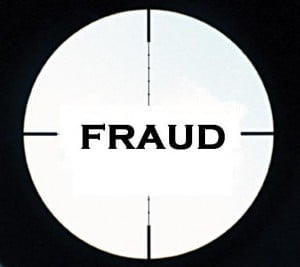Debtors who have incurred debt because of foolish financial decisions will not be denied a bankruptcy discharge. However, debtors engaged in fraud can find that their bankruptcy discharge is denied. But how can the court tell the difference between foolishness and fraud?
Let’s take a look at a few examples:
A debtor who uses one credit card to pay another until they have maxed out both, may be involved in foolish behavior but in the eyes of the bankruptcy law, they are not engaged in fraudulent behavior. On the other hand, if the debtor used one credit card to pay another with no intention of paying off the card they used for that purpose, this act could be considered fraud and the debt could be denied a bankruptcy discharge.
A debtor who used their credit cards to invest in a business opportunity which turned out to be a scam, would not face a charge of fraud because they had no intention of defrauding the credit card company. The bankruptcy court would just consider it a foolish decision. However, if the debtor continued to use their credit card to invest in what they knew was a scam or criminal enterprise they could be denied a bankruptcy discharge because of fraud.
A debtor who incurs gambling debts because they are foolishly chasing the elusive payout may not be denied a bankruptcy discharge if they had every intention of repaying their debts. For example, if the debtor had a history of paying on some of the gambling debts before filing bankruptcy, they might not be charged with fraud. On the other hand, if the debtor never made any efforts to pay gambling debts before filing bankruptcy, they could be denied their bankruptcy discharge.
